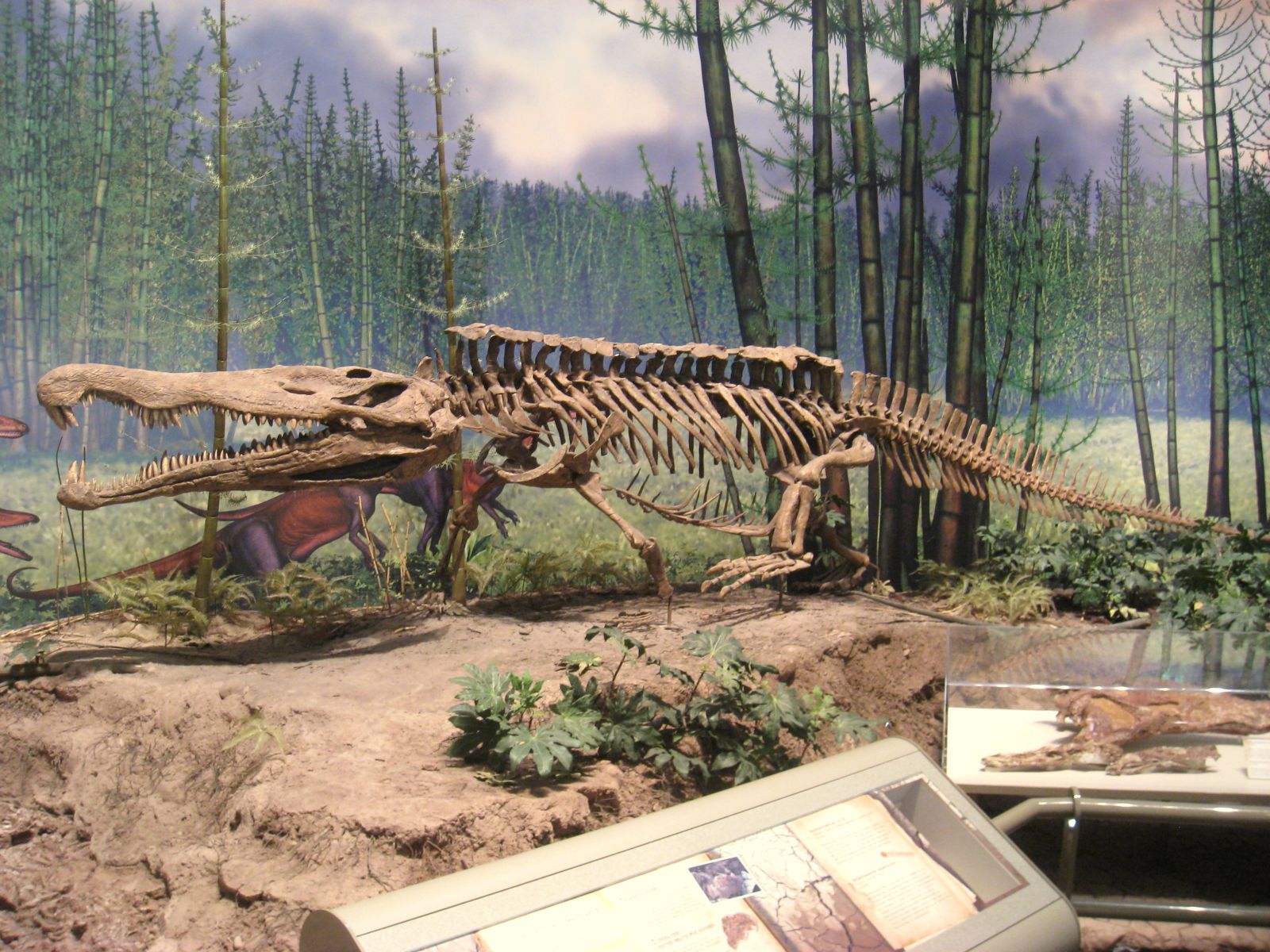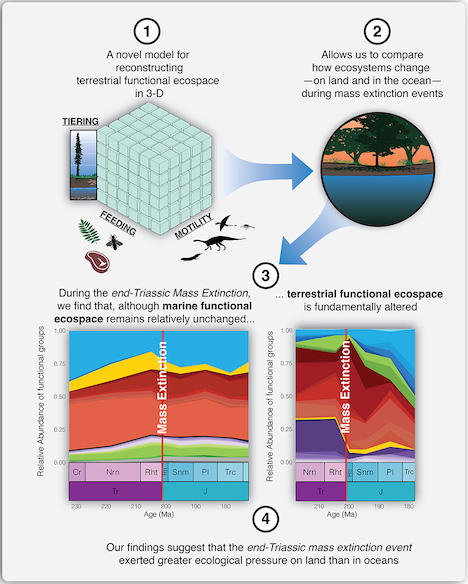Lessons from the Past: The Triassic Extinction Teaches Us About the Current Climate Crisis
Follow us on Google News (click on ☆)
This research, published in Proceedings of the Royal Society B, demonstrates that terrestrial ecosystems not only suffer more during mass extinction events but also take longer to recover compared to marine ecosystems. This discovery emphasizes the importance of protecting our terrestrial ecosystems in the face of the current climate change.

The extinction of reptiles at the end of the Triassic is poorly understood, but phytosaurs (like this Redondasaurus) went from abundant to extinct by the end of the Rhaetian.
Image Wikimedia
This project brought together paleoecologists and geologists from the Dinosaur Institute and other institutions to examine the effects of the late Triassic extinction. They compared terrestrial and marine ecosystems by creating the first terrestrial "ecospace" for this period, a method previously applied only to marine ecosystems. This innovative approach has allowed for a better understanding of how different animal groups were affected and how they adapted across ecosystems.
The study reveals that terrestrial ecosystems, with fewer groups occupying key ecological roles, experienced a higher severity of extinction and a longer recovery time than marine ecosystems. This increased vulnerability of terrestrial ecosystems, highlighted by the research, issues a warning about the current risks associated with human-induced climate change.

Graphic representation of the study concept and findings.
Credit: C. Henrik Woolley/Natural History Museum of Los Angeles County
The researchers hope that their developed framework for this study will allow for a better understanding of mass extinctions throughout history and inform mitigation and conservation efforts. The project also highlights the importance of fossils and the fossil record in understanding not only the world of dinosaurs but also our rapidly evolving climate.